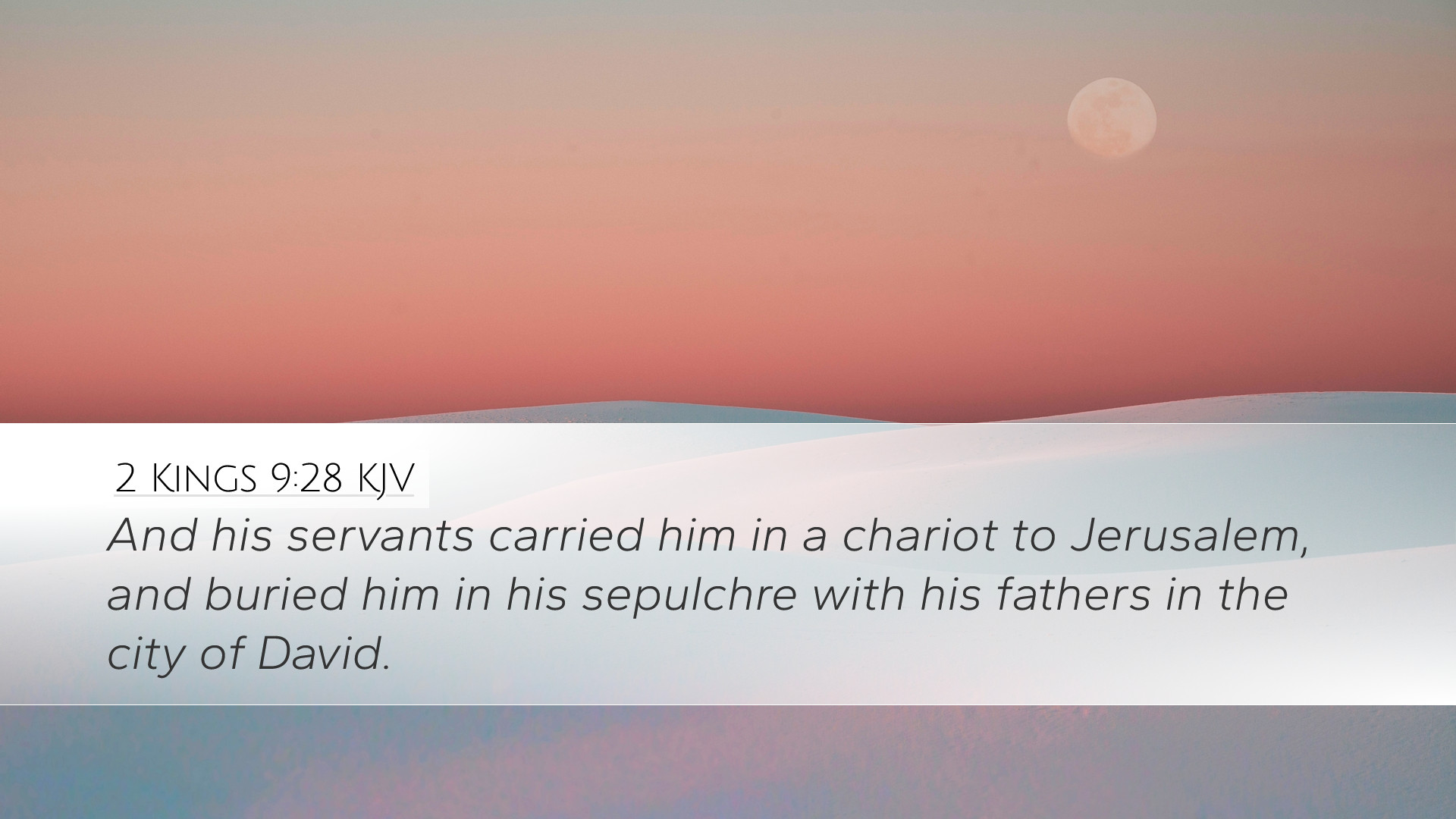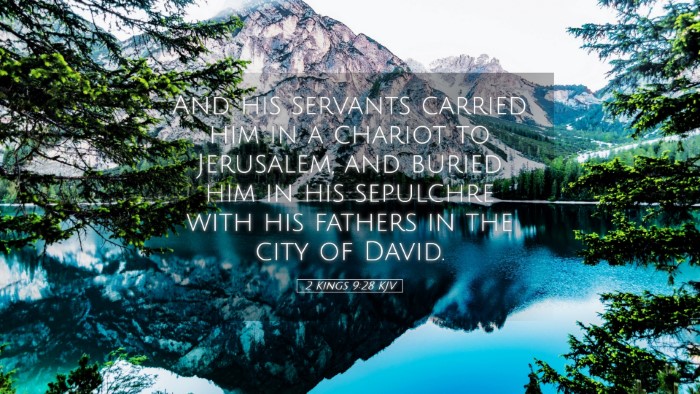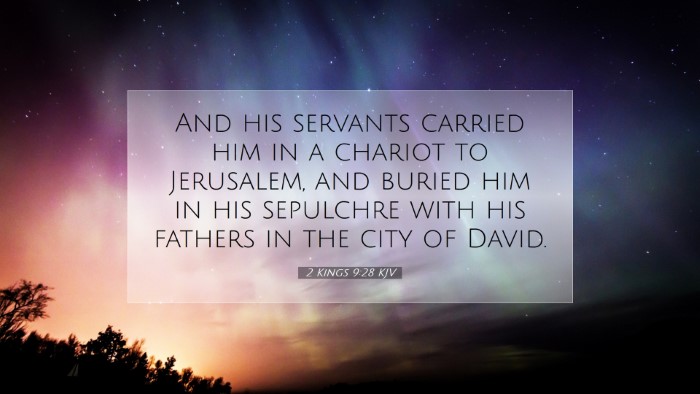Commentary on 2 Kings 9:28
Verse: "And his servants carried him in a chariot to Jerusalem, and buried him in his sepulchre with his fathers in the city of David."
Introduction
This verse follows the tragic end of King Ahaziah of Judah, who met his demise during his alliance with the sinful House of Ahab. This moment encapsulates significant themes of judgment, the fulfillment of prophetic utterances, and the consequences of ungodly alliances.
Contextual Overview
In the broader context of 2 Kings, we see a detailed account of the decline of both Israel and Judah due to their unfaithfulness to Yahweh. This chapter is particularly pivotal as it illustrates God’s judgment on the remnants of Ahab’s dynasty through Jehu, who was anointed king to eradicate Baal worship and purify Israel.
Analysis of Key Elements
The Burial of Ahaziah
The act of burial signifies respect, yet for Ahaziah, it also starkly acknowledges the reality of his judgment. According to Adam Clarke, a burial in the city of David indicates a semblance of dignity that belied a life marked by rebellion against God.
The Role of His Servants
Here, we note the involvement of Ahaziah's servants. Matthew Henry eloquently points out that they may have recognized the inevitability of God’s purpose through Jehu’s actions. Their decisions reflect a complex loyalty towards a royal figure while submitting to divine judgment.
The Significance of Jerusalem
Jerusalem, being the city of David, carries heavy theological implications. Albert Barnes notes that despite Ahaziah's shortcomings, being buried in this holy city evokes God’s grace in preserving a royal lineage, albeit through the righteous remnant amid pervasive evil.
Theological Implications
- Judgment and Mercy: The juxtaposition of judgment (through execution of the previous kings) against the mercy of allowing Ahaziah's burial in Jerusalem prompts deep theological reflection regarding God's nature.
- God’s Sovereignty: The sequence of events showcases God’s control over history and leadership, reinforcing the principle that the divine will ultimately prevails, regardless of human endeavors.
- Legacy of Alliance: Ahaziah’s alliance with Ahab represents a fundamental message regarding the dangers of compromising faith for political gain, illustrating that such travels often lead to tragic ends.
Lessons for Today
The narrative surrounding 2 Kings 9:28 offers profound lessons for contemporary believers, particularly pastors and theologians:
- The Danger of Unholy Alliances: This passage warns against partnerships that contradict biblical principles, urging a reassessment of relational and ministerial connections.
- Accountability in Leadership: As leaders, there is an inherent responsibility to recognize the weight of decisions and the potential repercussions on future generations.
- Hope Amidst Judgement: Just as Ahaziah had a burial space, believers are reminded that God can offer grace and provision even in moments of judgment and crisis.
Conclusion
In summary, 2 Kings 9:28 encapsulates a moment of closure reflecting on the life and death of King Ahaziah within the larger narrative of divine judgment and redemption. It serves as an admonition and encouragement to all who engage in the study of the Scriptures—prompting reflection on God’s unwavering sovereignty and rich grace offered to humanity, even in times of profound darkness.


